Do you regularly suffer from a sore neck and want to prevent it from returning?
Our hectic daily schedules, sedentary lifestyles, and lack of movement are all complicit in making neck pain an expected part of life in 21st century America. Our overuse of technology doesn’t help either. We spend hours every day slouching over computer screen and smartphones. It’s hard to avoid, even with the best of intentions. It’s just life.
That’s why pain in the neck and back are amongst the most common kinds of pain we see in the Universus PT clinic. It ranges from acute injuries – painful immovable necks and slipped cervical discs – to chronic, long-lasting pain accompanied by inflammation and numbness, among many other symptoms.
Sometimes, neck pain can even inhibit your normal range of motion. It prevents you from working, socializing, and carrying out routine daily activities like lifting your arms, dressing, or driving (because you can’t move your neck and check for oncoming traffic).
But can adopting a few simple lifestyle changes make a significant difference and prevent neck pain from returning? What simple changes can you make to alleviate and prevent back and neck pain or stop it from returning after it’s gone?
More Blogs From Universus:
The Importance Of Relaxing Your Pelvic Floor Muscles
How Physical Therapy Can Cure Your Headaches
Pelvic Pain: This Is Not Something We Only See In Pregnancy Or The Postpartum Period
Here are our top tips:
Make commuting more comfortable

Do you need to drive long distances daily as part of your work schedule? Commuting long distances with frequent traffic jams can be mentally exhausting. Still, it can also lead to neck, shoulders, and back pain.
However, if you have a car with automatic transmission, it’s much less likely to cause stress on the back, neck, and shoulders because your arms can relax a little more.
Another way to prevent pressure on the back, neck, and shoulders is to use back support cushions to support the cervical spine and lumbar region.
Another way to prevent pressure on the back, neck, and shoulders is to use back support cushions to support the cervical spine and lumbar region.
Try to do some quick neck stretches while waiting at a light or even if you are sitting on the train.
Turn the head as if you are saying “no”, nod the head as if you are saying “yes”, bring the ears from one shoulder to the other. Do it 5x on each side.
Get up and move around
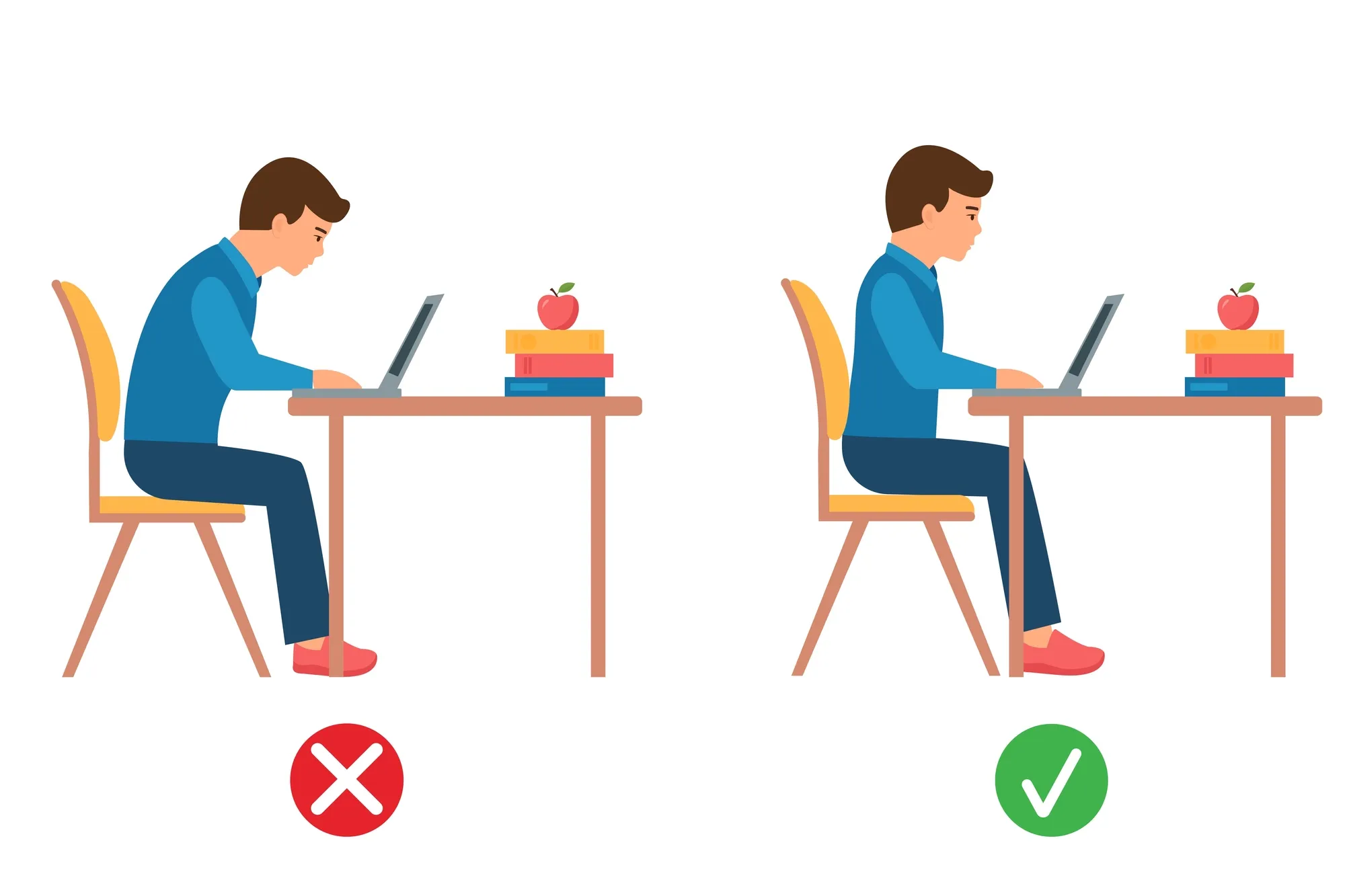
The more active you are daily, your long-term health improves. Sitting for extended periods is detrimental to spinal health, and it’s one of the leading causes of chronic neck pain.
The best way to incorporate regular movement and activity into your daily life is to stand up and walk around every 20-30 minutes. Depending on how long you need to sit, try to include at least two to three 5-minute breaks every hour.
Also, when you maintain a good posture when seated, you avoid neck pain, stiff shoulders, and a sore back. For instance, when you purchase a new office chair, look for one that is ergonomically designed to support your lower back and spine.
Get the correct type of mattress
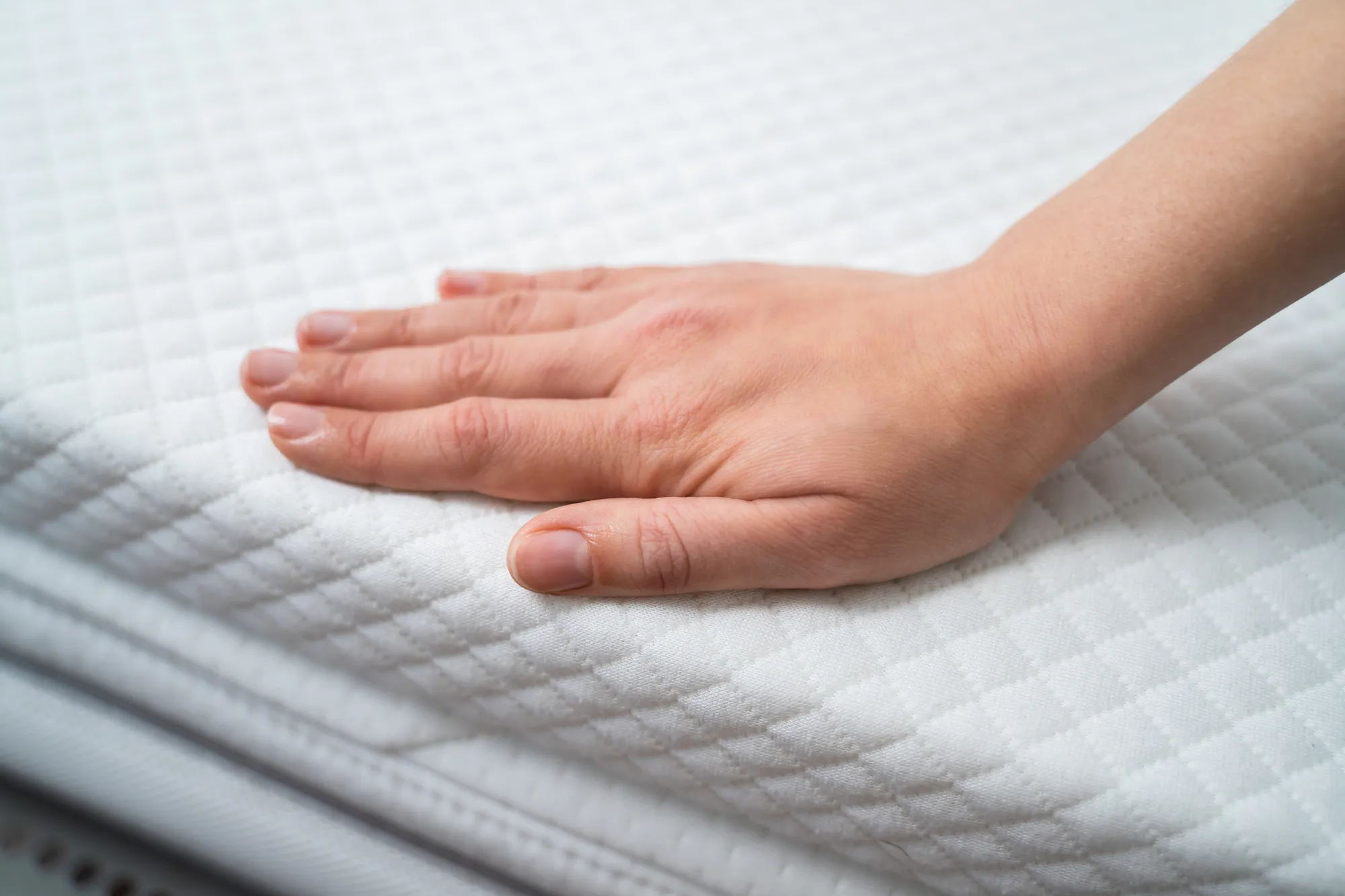
Investing in the right bed could make you much more comfortable while you sleep and help prevent neck pain. Like Goldilocks, it’s best to get a mattress that is neither too soft nor too hard. It needs to be “just right.” Medium soft is ideal for most people.
Specialized orthopedic beds are also widely available to purchase in-store and online – although they can be expensive. Orthopedic beds and mattresses offer excellent support if you have chronic back or neck pain or spinal alignment issues.
Some of them come with memory foam that adapts to the contours of your body (namely your back) and provides superior support while you rest. When you select a mattress, choose one that, when combined with a good pillow, offers ample support for your neck, back, and head, so you can enjoy a restful night’s sleep and prevent neck pain.
Maintain the correct posture while standing
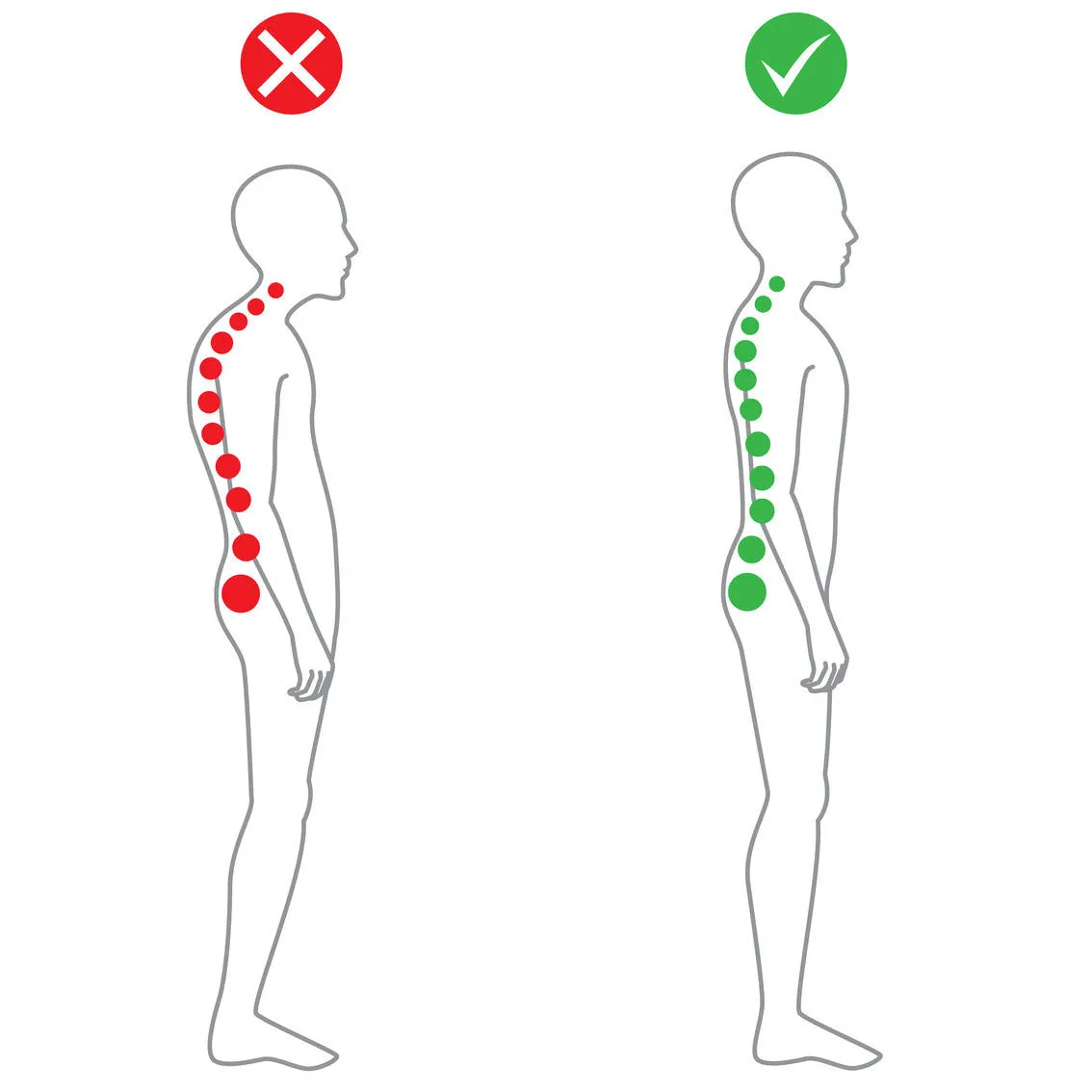
There is a common misconception that maintaining a good posture while sitting at your desk is the only important thing.
But the truth is that proper standing posture is equally essential, so you don’t put unwanted strain on the lower back and neck that can lead to pain.
For example, if you need to stand for long periods, you can prop one foot up to distribute your weight and relieve stress on your back. Another option is to practice stretching movements while you’re standing. These simple stretching movements can make a big difference in preventing neck pain.
Modify how you carry out tasks
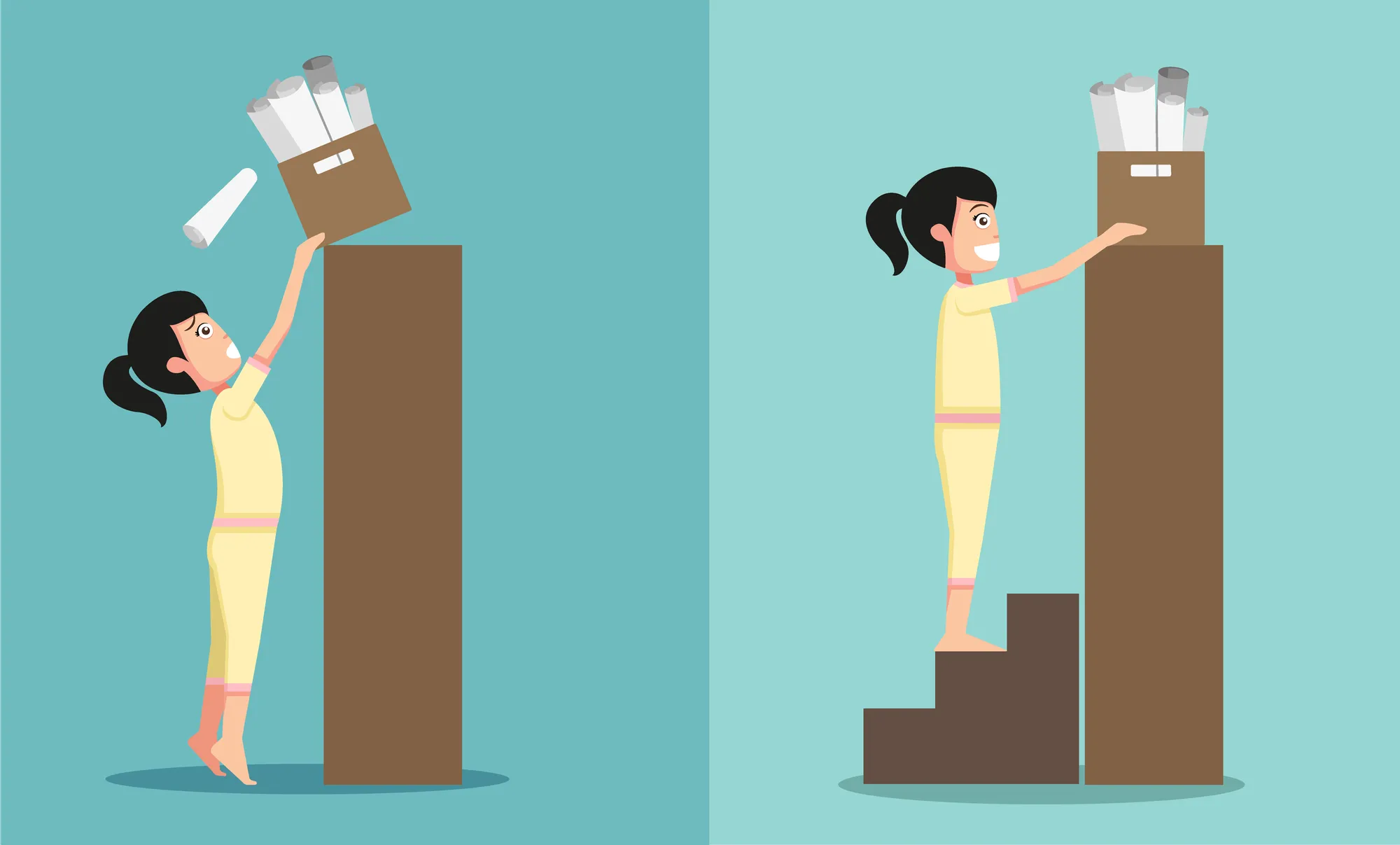
Adding a few modifications to how you carry out your household tasks will help relieve stress on the back and prevent neck pain. From avoiding bending at extreme angles to correctly lifting objects, there are many ways to make your daily chores less tiring.
If you have chronic neck pain and back issues and need to complete a labor-intensive task, get a friend or family member to help. Or, better still, hire someone to do the job for you.
Air Travel

If you enjoy a vacation once or twice a year and travel on long-haul flights, it can be an incredibly tiring experience. Many air travelers complain about sore backs and neck pain that started on a long flight.
When you sit on a plane, there is often little leg room unless you’re lucky enough to be flying First Class.
But in most cases, economy seats offer limited leg room and are generally uncomfortable. The best way to overcome this and prevent neck pain is to try and move out of your seat whenever you get the opportunity. Walk down the aisle or go to the restroom on the other side of the plane for additional exercise every hour or so.
Try to do some stretches and twisting movements while you’re out of your seat to limber up your muscles and improve your circulation. When you’re in your chair, support your feet, so you’re not overarching your back or slouching. Doing a few neck exercises and movements like sitting can also help prevent neck pain.
Sleep in the correct position
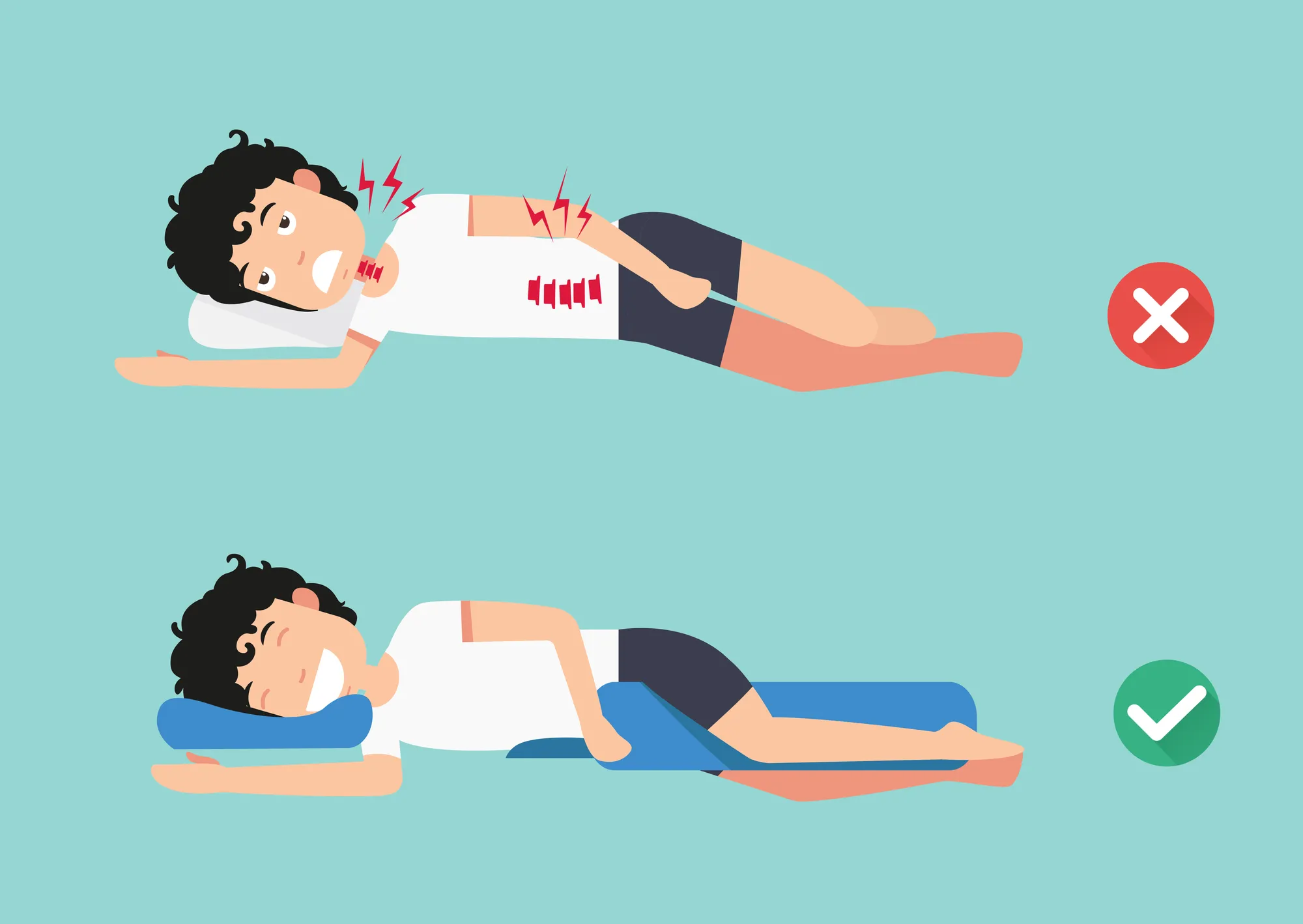
Sleep is arguably the most critical factor in preventing neck pain. An awkward sleeping position causes many of the cases of neck pain in the patients we see in the Universus clinic. We spend a large proportion of our lives asleep.
For a good reason, too, because it’s necessary to ensure the body gets adequate rest and recovery time, and you awake fresh and ready for the next day. But some sleeping positions need to be avoided if you want to prevent back and neck pain.
Maintaining a good posture while asleep is as essential as sitting and standing upright and not slouching. The back and neck muscles need adequate support when you sleep – otherwise, they suffer stress and strain.
Using a pillow as a “prop” underneath your back or legs can help. Avoid sleeping on your stomach – that’s the worst position for neck strain and pain. Lie on your back or side instead. You can place a pillow under your knees while lying on your side to help keep your spine in alignment.
You can also try a custom pillow by inquiring about pillowise pillows at Universus Physical Therapy.
Exercise

To prevent back and neck pain, try to incorporate at least 30 minutes of exercise into your daily routine. You don’t have to hit the gym and lift weights (although that would be good).
Instead, you can get in your daily 30-minute quota or movement by walking, cycling, or jogging. It all makes a difference to whether you have neck pain. Statistics about neck pain in the US and worldwide support the idea that the more active your lifestyle is, the lower the risk of back or neck pain.
Consult a Physical Therapist

If you suffer from intermittent bouts or twinges of neck pain and want to prevent it from getting any worse. We recommend you consult a physical therapist to find and treat the root cause and prevent it from returning and affecting your daily life.
Maybe it’s a pain that starts in your neck and travels down your shoulder and arm or a dull ache that seems to be there most of the time.
Maybe it’s just neck stiffness and irritation or inflammation that doesn’t get better no matter what you do. Don’t worry. It is likely not just “age” or “wear and tear”, most times there is a reason for the pain and the physical therapist will help with diagnosing what that problem is.
You don’t have to put up with it. We can help you fix it – starting with a free consultation with one of our Physical Therapists and neck pain experts.


